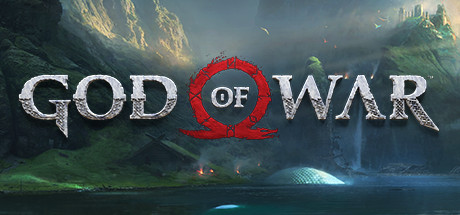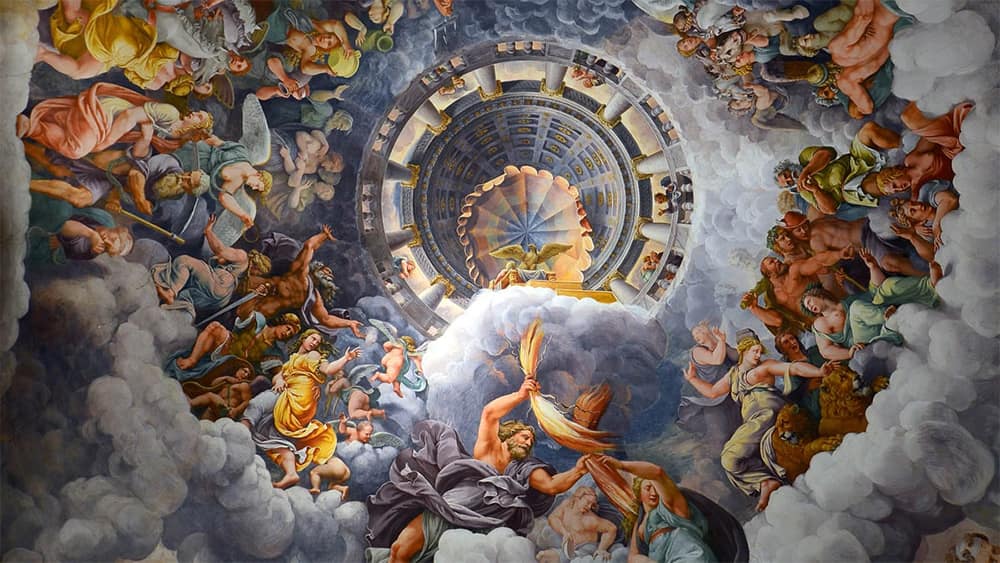God of War Story and Greek Mythology (Full Story)
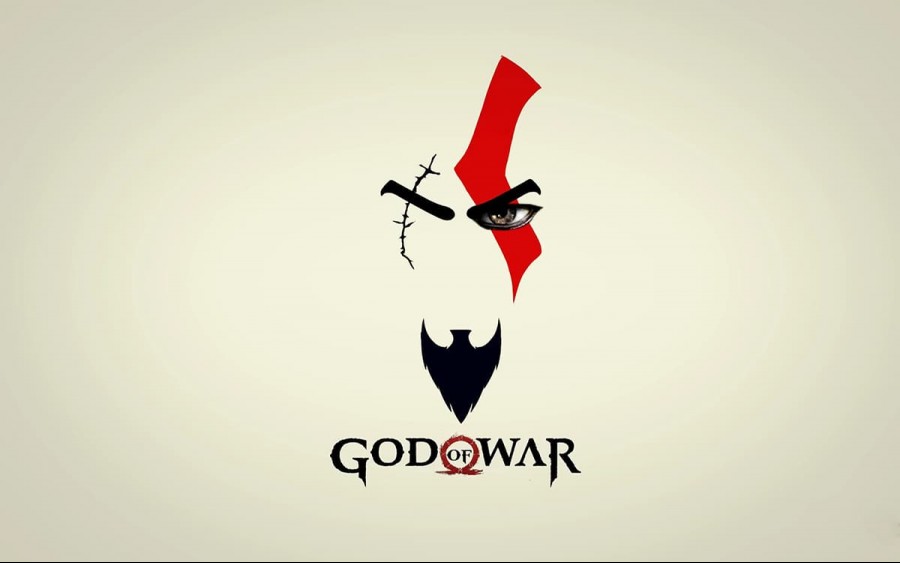
In this article, we will talk about the God of War Story, which was very popular when it was released on PlayStation in 2005, and Greek Mythology, which is the theme of this game. As it is known, God of War is a hack-and-slash game that tells Greek Mythology and the stories in it with modified fictional elements. One of the most significant features of the God of War game, in which we control a character named Kratos and seek revenge, is that it introduces Greek Mythology and processes the Gods from the very beginning (also visually) with its unknown features.
To get to know the God of War game and other characters, including Kratos in the game, to see the story of God of War better, we must know about Greek Mythology.
Greek mythology
Greek Mythology is the name given to the general form of Ancient Greek religion, including the stories of creation, gods, goddesses, and heroes in Ancient Greece (756 BC-146 BC). Greek Mythology influenced many European Countries and other regions around it and was also attracted by Rome. So much so that the Gods and Goddesses believed in Rome were inspired by Greek Mythology and emerged with different names.
When it comes to Greek Mythology, the first thing to come to mind is Hesiod. Hesiod is a poet known as the Father of Didactic Poetry in Ancient Greece. Hesiod is the person who enables us to learn the before and after of Greek Mythology and even all Ancient Greek Beliefs. In his Theogonia, Hesiod tells legends such as the creation of the universe, the birth of the gods, and the descendants of the gods and divine beings. Today, the only work that allows us to know Greek Mythology's details is Theogonia.
There are three kinds of divine or creative types in Greek Mythology. These;
- Primordial Deities
- Titans
- Olympians
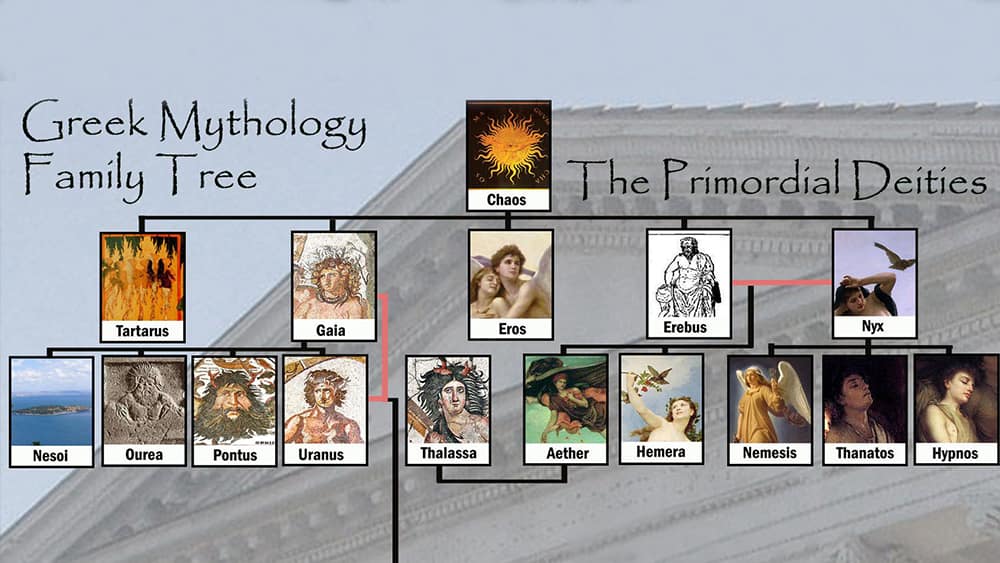
Primordial Deities
Primordial Deities, known as the first Gods and creators, are the first beings that formed Greek Mythology and its foundation. The creation of the universe, time, and earth occurred during these deities' time. They are made of the fabric of the universe. Also known as "Element." Primordial Deities are as follows;
- Chaos: Chaos represents the 'void' state before the creation of the universe in Greek creation myths or the first 'void' created in the separation of heaven and earth.
- Tartarus: Tartarus is both a god and a place in the underworld. As a place, Tartarus is used as a dungeon of torture and suffering for the wicked and a prison for the Titans. Tartarus, the god, is the protector of the underworld and hell.
- Gaia: Gaia is the mother of all life and its ancestors. She is the most critical primordial god. She is shown as the mother of the Titans and the reason for the existence of other important figures in Greek mythology. It is called Mother Earth because it is known as the mother of the earth, soil, and nature.
- Eros (Elder Eros): Eros was born of the primordial god Chaos, the God of Love and Creativity. Not to be confused with the other Young Eros.
- Erebus: Erebus is the god of darkness. Little has been written about him in Greek literature and mythology. In Greek literature, the name Erebus is also used as a region of the Greek underworld where the dead pass immediately after death.
- Nyx: Nyx is the goddess of the night. She is one of the goddesses of the Greek myth about whom little is known. It is said that Zeus was afraid of himself. She is also known to have extraordinary strength and beauty.
- Ourea: Ourea is the god of the mountains. The belief that each peak has its god was adopted, and a god was bestowed on every known high mountain. Aetna, Athos, Helikon, Kithairon, Nysos, Olympus I, Olympus II, Oreios, Parnes, and Tmolus are the names of these gods.
- Pontus: Pontus is the primitive god of the sea. Born of the earth at the dawn of creation, it is not only the god of the sea but the sea itself. Pontos is depicted in Greco-Roman artifacts as a giant horned head with a light gray beard and crab claws rising from the sea.
- Uranus: Uranus is the primordial god of the sky. Hesiod says in Theogonia that Uranus came every night to cover the earth and mate with Gaia.
- Thalassa: Thalassa was the ancient goddess of the sea. She produced fish and other sea creatures with her Uncle Pontus. Thalassa was the form it took when the waters rose.
- Aether: God of the sky, skies, and light. He is mentioned as the first elemental god in the Works. There is not much information available about him. It contains the pure air that the gods breathe. The Aether lost her battle with Zeus and was exiled to space.
- Hemera: Hemera is the goddess of the day and the day. Hemera is known as the incarnation of daytime.
- Nemesis: Goddess of evil deeds, anger, and revenge. She is known as the enemy of beings unjustly favored or done well.
- Eris: Known as the goddess of strife, discord, contention, and rivalry.
- Thaumas: Thaumas is one of the Water gods. Thaumas, who is said to be the god of raindrops, also provides communication between the gods.
- Phorcys: Phorcys is the god of dangers in the depths of the seas.
- Ceto: Ceto is the goddess of sea monsters, whales, and great sharks.
- Ananke: Ananke is the ancient goddess of necessity, compulsion, and inevitability.
- Chronos: He is the first god of time, who created time and could travel in it as he wanted.
- Hydros: God of ancient waters, often depicted as water itself.
- Nesoi: The goddesses of the islands. Each island has its goddess. The general is called Nesoi.
- Okeanos: Primordial Titan, the god of the Okeanos River, is the source of all the world's fresh water and surrounds the earth.
- Phanes: Goddess of life and creation.
- Physis: Physis is the goddess of nature called "First Born."
- Thesis: The thesis is the ancient goddess of creation. It was born from primordial waters.
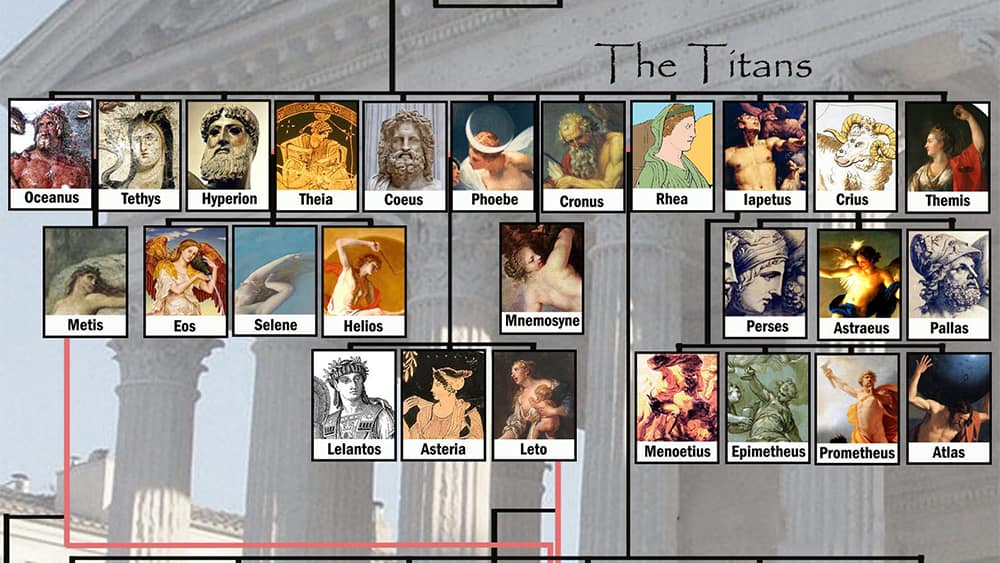
Titans
It is the name given to the Titans, Uranus, and Gaia children, as Hesiod mentioned in his works. Uranus had 18 children in total. However, Uranus keeps his children in Gaia's womb, so they do not seize power and turn against them. Five children living in prison (Hyperion, Krios, Koios, Lapetos, Kronos) oppose Uranus. With the encouragement of their mother, Gaia, the siblings emerge from the womb, the center of the earth. The five freed brothers oppose Uranus with the support of Gaia. Kronos, the leader of the rebellion, sets a trap in the world with his brothers and waits for Uranus.
Uranus descends to earth to rest from the sky, where he rules the universe. Meanwhile, the brothers standing around the world begin to hold the sky as Uranus falls to earth. Kronos, who castrated Uranus in the center of the sky with the adamant sickle given by his mother Gaia, takes the domination of the universe under his brothers' control and sits on the throne—with the castration and exile of Uranus, Kronos, who became the God King, started the "Golden Age" period in Greek Mythology. In this age, Gaia bestows abundance and fertility on humans. Feelings such as jealousy, hatred, and anger in people disappear. It is even said that the gods began to wander among the people.
Uranus kept his children, Hecatoncheires and Cyclops, in Gaia's womb to prevent them from rebelling. When Kronos took the throne, he freed his brothers. But after a while, he was afraid that what he did to his father would happen to him, and he imprisoned his brothers in Gaia's womb again. Kronos, who did not interfere with the rule of his brothers, with whom he ruled the universe, and imprisoned his other brothers in the womb of Gaia, did not stop there; he married his brother Rhea and ate his children one by one. After paranoia, he began to act like his father, Uranus.
The gods and goddesses called titans are as follows;
- Asteria: Asteria is the goddess of night omens and shooting stars.
- Astraeus: Astraeus is the god of twilight and winds.
- Atlas: Known as the god of endurance, he was punished for carrying the earth and the heavens.
- Aura: Aura is the goddess of the fresh and cool air of the morning.
- Clymene: Clymene is the goddess of fame and fortune.
- Coeus: Coeus is the god of the mind and the universal axis. When Uranus is castrated, Coeus is one of the gods placed at the four corners to hold the universe in place. God of the North is another name.
- Crius: Crius is one of the four-cornered gods. He is referred to as the God of the South and is the god of constellations.
- Cronus (Kronos): Lord and god of time, known as the King of the Titans.
- Dione: Goddess is known as Zeus' first wife, seer of Dodona, and mother of Aphrodite.
- Eos: Goddess of dawn. Eos is depicted in a chariot drawn by winged horses or as he ascends on his wings to the sky.
- Epimetheus: God of excuses and afterthoughts.
- Eurybia: Goddess of the power and might of the seas.
- Eurynome: Goddess of grace and third wife of Zeus.
- Hyperion: God of light, wisdom, and alertness.
- Iapetus: Iapetus is the god who determines mortals' mortality and lifespan.
- Lelantos: Also called "Invisible" and "Unnoticeable," Lelantos is the god of breezes in the air.
- Menoetius: God of fierce anger and haste.
- Metis: Goddess of good advice, who assisted Zeus during the war.
- Mnemosyne: Mnemosyne is the goddess of memory, words, and language. The origin of word memory comes from Mnemosyne.
- Oceanus is the god of Oceanus, the freshwater river surrounding the world.
- Ophion: The god who ruled the world with his wife, Eurynome, before Kronos and Rhea. Kronos wrestled with himself and defeated him, and expelled him from heaven. He mingled with his wife in the ocean waters.
- Pallas: God of troops and warships. During the War of the Titans and Olympians, Athena defeats him and makes a shield for herself from Pallas' skin.
- Perses: Perses is known as the god of scorching heat and destruction in the middle of summer.
- Phoebe: Phoebe, one of the great seers of Delphi, is the goddess of reason and prophecy.
- Selene: Selene is the moon goddess. She is also known as the goddess who blends the day into the night.
- Styx: She is the goddess of the river named Styx in the underworld. It takes its name from the river itself. She is often known not as a goddess but as an angry spirit.
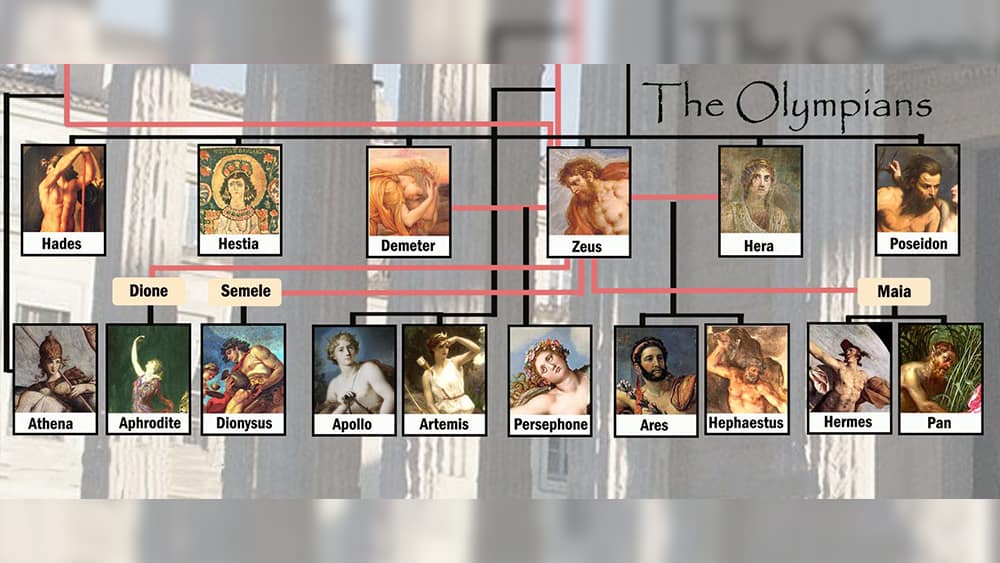
Olympian Gods
When Kronos hears a prophecy, he begins to change. According to the sign, Kronos will be dethroned and exiled by his child, just like his father, Uranus. To avoid the prophecy, Kronos expelled everyone around him, imprisoned his brothers in Gaia's womb, and began to eat all of his children from Rhea, one by one. On the other hand, Rhea gets tired of sacrificing her children to Kronos and plans to protect her last child from Kronos. Rhea, who goes to the island of Crete when her birth approaches, gives birth to Zeus in a cave. So that Rhea's labor pains and Zeus' screams are not heard, the Curets slam their shields and drown their voices.
Rhea entrusts Zeus to divine beings and fairies and takes a piece of rock wrapped in a cloth to Kronos. Kronos mistook the stone in the glands for Zeus and swallowed it. Meanwhile, Zeus was secretly raised on Dicte Mountain on the island of Crete. Here the fairies feed her with the milk of the goat Amaltheia, and her cries are suppressed by the warrior Curets with their war dance. When Zeus is old enough to fight, he takes Metis, the Goddess of Good Advice, to his side and asks for help. Metis decides to help Zeus to end his father's tyranny and prepares a wine that will make his father vomit. Zeus takes the wine from Metis and confronts Kronos as an Olympic goblet-bearer. When Kronos drinks the wine, he is poisoned and nauseous; he vomits all his children that he had previously swallowed.
Zeus rescues his brothers from the stomach of his father, Kronos. The brothers were born a second time, according to mythology. Therefore, Zeus rises from the position of the youngest to the part of the oldest brother. Rescuing Cyclops and Hecatoncheires, whom Kronos had previously imprisoned, Zeus takes the power of lightning and fire from them. The "Lightning," also the symbol of Zeus, comes from here. Then the 10-year war begins, known as Titanomahia, the War of the Titans. Zeus marries Metis during the war. Metis tells Zeus that she is pregnant and will have two children. One of these children will be a girl, and the other will be a boy, and the boy will dethrone Zeus. Zeus does not want to experience what Uranus went through and, pretending to be his father, swallows Metis as it is. The boy in Metis' womb disappears. Metis, on the other hand, changes her physical form and turns into Zeus' thoughts. The girl in his thoughts is still alive. Zeus seeks help from his son, Hephaestus, from his wife, Hera. Hephaestus comes to help with his sledgehammer, slicing his father's head in half. A girl is born from the head of Zeus as an adult. Zeus names the child Athena. Athena plays a significant role in the war.
Zeus then battles Kronos with the support of his brothers, children, and some Titan Gods and Goddesses. Zeus, who attacked Kronos from all sides with his brothers and children, was victorious, crushed Kronos with Kronos' Adamant Sickle, and cast him into Tartarus. Having gained powers even superior to the Titans, Zeus, and his brothers begin to take on different roles in the universe. Zeus owns the Sky, the Universe, and the Lightning. Poseidon takes the seas; Hades takes the underground; Demeter takes nature, fertility, and abundance.
These gods and goddesses, who went into mythology as Olympians, are as follows;
- Amphitrite: Amphitrite is the goddess of the sea and the wife of Poseidon.
- Aphrodite: Aphrodite is the goddess of love, beauty, pleasure, and reproduction.
- Apollo: Apollo is the god of prophecy, music, song, poetry, archery, healing, plague, and disease. He is also known as the protector of the young.
- Ares: Ares is the god of war, passionate about fighting, courage, and civil order.
- Artemis: Artemis is the goddess of hunting, wilderness, and wild animals. It is known for bringing abundance under challenging times or providing convenience in hunting.
- Asteria: Asteria is the goddess of falling stars, odd dreams, and night omens. Although initially a Titan Goddess, she was later recognized as an Olympian.
- Athena: Athena is the goddess of wisdom, good counsel, warfare, defense, weaving, pottery, and other crafts.
- Bia: Goddess of power. She is one of the four-winged creatures on the throne of Zeus.
- Charities: Three goddesses of grace, beauty, ornament, joy, merriment, festivity, dance, and song. Charities' word origin comes from these goddesses.
- Demeter: Demeter is the goddess of agriculture, grain, and bread, who nourishes humanity with the rich grace of the world.
- Dike: Dike is the goddess of justice, fair judgments, and rights established by tradition and law.
- Dionysus: God of wine, vineyard garden, pleasure, festivity, and madness.
- Eirene: Eirene is the goddess of peace and the season of spring.
- Eunomia: Eunomia is the goddess of good order and legal behavior.
- Eurynome: One of the elders of the oceans and the goddess of water meadows and pastures. Although initially a Titan, she became known as an Olympian because she married Zeus.
- Eros: Eros is the god of love, known as a mischievous, pest and winged. He is also the slave of the goddess Aphrodite.
- Hades: Hades is the King of the underworld and the god of the dead.
- Hebe: Hebe is the goddess of youth and the person who offers the drink called Ambrosia to other gods and goddesses at celestial feasts.
- Hecate: Hecate is the goddess of magic, witchcraft, the night, the moon, ghosts, and crossroads.
- Hephaestus: God of fire, blacksmiths, artisans, metalworking, stonework, and sculpture.
- Hera: Hera is the queen of the gods and the goddess of marriage. It symbolizes women, the sky, and the stars of heaven.
- Hermes: God of herds, travelers, hospitality, roads, commerce, theft and cunning, messengers, diplomacy, language and writing, athletic competitions and gymnasiums, astronomy, and astrology.
- Hestia: Hestia is the goddess of sacrificial fire in homes and properties. She is known as a virgin goddess.
- Kratos: Kratos is the god of power, might, energy, and sovereign rule.
- Leto: Known as the goddess of motherhood and the protector of children and youth.
- Moirai: Three destiny goddesses who weave the thread of human destiny.
- Muses: Nine sister goddesses of music, song, dance, and other arts.
- Nike: Nike is the winged goddess of victory in war and peaceful competition.
- Persephone: Persephone is the goddess queen of the underworld and wife of the god Hades.
- Poseidon: Poseidon is the god of the seas, earthquakes, floods, drought, and horses.
- Psyche: Psyche is the goddess of the soul and the wife of the god of love, Eros.
- Thetis: Thetis is a sea goddess with the gift of prophecy and the power to change her form at will.
- Triton: Triton is a half-fish, half-human god who is the son and messenger of Poseidon.
- Zelus: Zelus is the god of rivalry, imitation, envy, and zeal.
- Zeus: Zeus is the King of the Gods and the god of the sky, air, law and order, destiny, and kingdom.
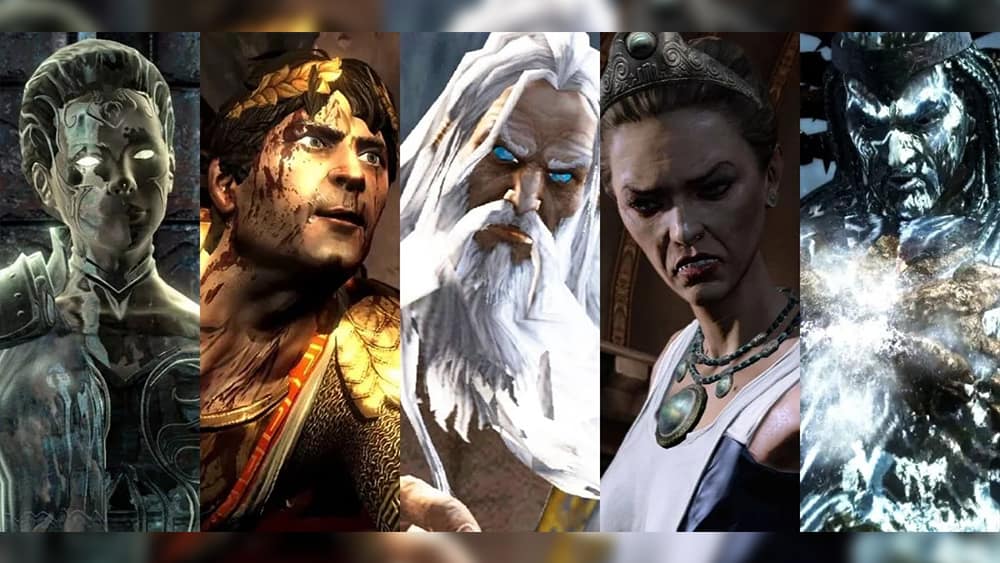
Greek Gods of God of War
After in-depth and detailed information about Greek Mythology, we can move on to the gods in God of War. Kratos is an Olympian god in Greek Mythology. The gods he encounters are both Olympian and Titanic, Primordial and Scandinavian gods. Here is the list of gods Kratos encountered:
- Athena
- Gaia
- Zeus
- Atreus
- Aphrodite
- Ares
- Artemis
- Eos
- Hades
- Helios
- Hephaestus
- Hera
- Hermes
- Morpheus
- Persephone
- Poseidon
- Thanatos
- Baldur
- Odin
- Thor
- Truck
- Freya
- Atlas
- Kronos
- Perseus
- Prometheus
- Rhea
- There
- Typhon
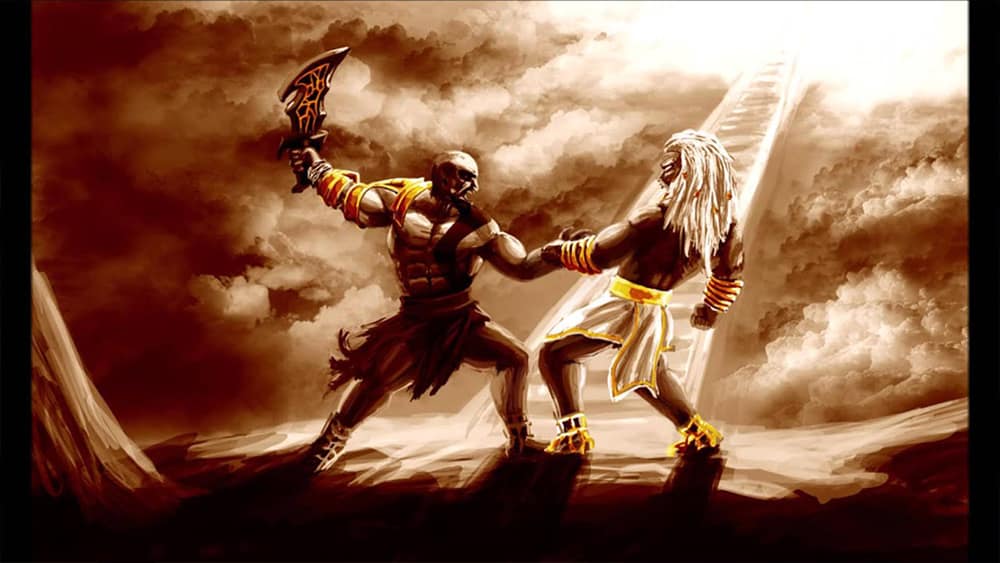
Gods Killed by Kratos
Kratos tries to take revenge according to the God of War story. During his revenge, he takes more lives. The list of the gods he killed is as follows;
- Ares (God Of War)
- Athena (God of War 2)
- Theseus (God of War 2)
- Perseus (God of War 2)
- Icarus (God of War 2)
- Lahkesis (God of War 2)
- Atropos (God of War 2)
- Clotho (God of War 2)
- Charon (God of War)
- Persephone (God of War)
- Poseidon (God of War 3)
- Hades (God of War 3)
- Helios (God of War 3)
- Hermes (God of War 3)
- Hercules (God of War 3)
- Hera (God of War 3)
- Cronos (God of War 3)
- Hephaestus (God of War 3)
- Zeus (God of War 3)
- Gaia (God of War 3)
- Perses (God of War 3)
- Callisto (God of War: Ghost of Sparta)
- Thanatos (God of War: Ghost of Sparta)
- Castor & Pollux (God of War: Ascension)
- Megaera (God of War: Ascension)
- Tisiphone (God of War: Ascension)
- Alecto (God of War: Ascension)
- Mimir(God of War 2018)
- Magni(God of War 2018)
- Baldur(God of War 2018)
- Modi (God of War 2018)
The Story of God Of War
The story of the God of War game has continued to progress astonishingly since its first release. The story of the game, in which we play God seeking revenge, is quite exciting and surprising at the same time. Let's review the story of the God of War game in chronological order;
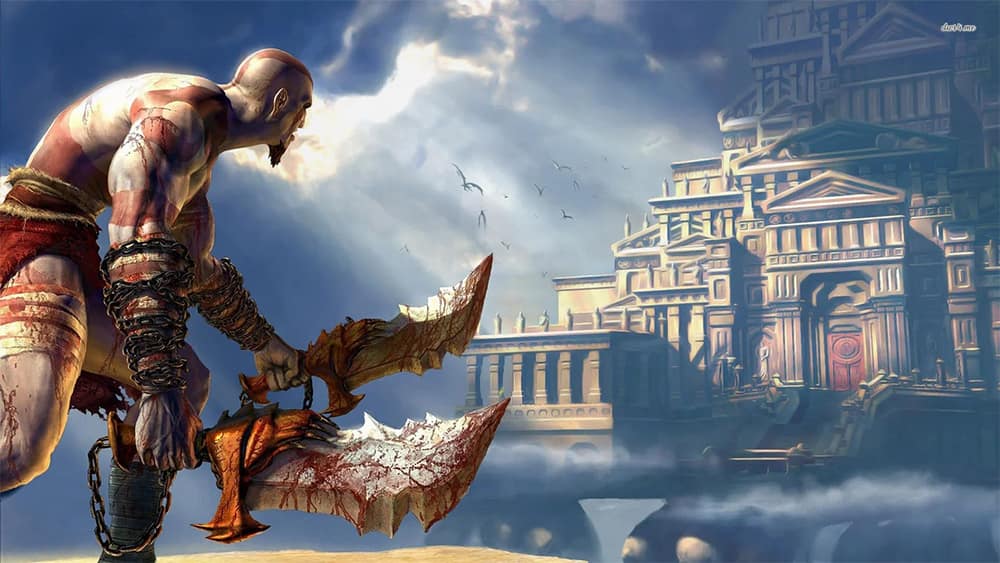
God of War 1
Kratos, the commander of the Spartan armies, is in a war and losing this war. When he is about to die, he makes a deal with Ares. According to this agreement, Ares will eliminate Kratos' enemies. Kratos will also enter the service of Ares. However, Ares deceives Kratos and causes Kratos to kill his family. Learning that he has been deceived, Kratos gives up serving Ares. When Kratos tells the Olympian gods that he wants to get rid of the nightmares caused by his regrets, they make promises to Kratos. Kratos accepts this and has served them for ten years.
Ares battles war against Athina, the city of Athena. Athena, who asks Kratos for help and guides him, tells Kratos that he can kill Ares and only do it with Pandora's Box. Kratos goes to the Pandora Shrine and finds the box. When Ares discovers this, he kills Kratos and takes the box. Kratos dies and goes to the underworld. But he escapes from there and goes to earth. Kratos retrieves Pandora's Box from Ares. In this way, he also gains the power to fight Ares. During the battle, Ares captures Kratos' weapon. Known as the Chaos weapon, he brings Kratos' pain and memories to light. Kratos finds the Sword of God's weapon in revenge and kills Ares.
After Ares' death, Athena says that all of Kratos' sins are forgiven. However, the only thing on Kratos' mind is to get rid of his nightmares. Kratos commits suicide when Athena realizes she can't do anything about the monsters. However, according to the Olympian Rule, Kratos has to replace the god he killed. The gods pull him out of the sea, where he committed suicide, and resurrect him. The new God of War has become Kratos.
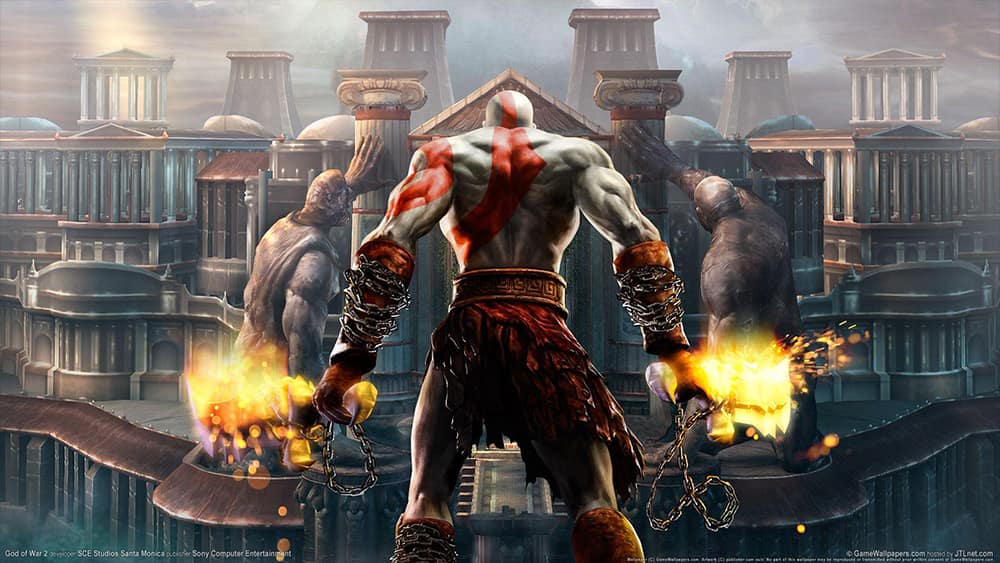
God of War 2
After Kratos became the new God of War, the Spartans fought with the Rhodesians. The Spartans are about to be defeated. When Kratos tries to help them, Athena won't let him. Kratos doesn't listen to her. Athena says Kratos must stop, and the wrath of the Olympian Gods will reach him. Kratos doesn't care and says he doesn't owe anyone anything; he goes down to Rhodes and shatters everyone.
Realizing that they are being challenged, Zeus disguises himself as a falcon and revives a statue named Colossus to stop Kratos. His goal is to stop Kratos. Kratos fights the Colossus but cannot win. Zeus sent the Olympian Sword to Kratos, which he used in the war between the Titans and the Olympians. Kratos takes the Sword and fights the Colossus. However, he must transfer his powers to the blade to defeat him. Kratos moves his divine powers to the Sword and defeats the statue. Realizing he is pretty strong, Kratos challenges and insults all the gods. Meanwhile, the arm of the figure he defeated falls on Kratos. Kratos is mortally wounded.
Realizing that he can save himself by taking the Sword of Olympus, Kratos barely tries to reach the Sword. In the form of a Falcon, Zeus takes his record and possession of the blade. He also catches Kratos. He says that Kratos should serve him. Kratos refuses. When Zeus says he will kill him, Kratos rejects him again. Zeus stabs the Sword in his chest and kills Kratos. Kratos is dragged into the underworld.
Drifting from right to left in the underworld, Kratos encounters Mother Nature, Gaia here. Kratos learns of Zeus' tortures against Gaia and the other titans from Gaia. He decides to make a deal with Gaia. All the titans who want to avenge Zeus also wish to help Kratos. Kratos emerges from the underworld. When he comes to earth, he learns that the war is over, and Zeus killed everyone. Kratos sets out with Pegasus to kill Zeus.
During the journey, Kratos learns he is no longer an immortal god but a simple human being. He realizes the only way to kill Zeus is to return in time. Gaia tells him to go to the Sisters of Fate. However, Kratos crashes on another island while traveling. Kratos, who fights with some creatures and heroes on the island, gets the Golden Wool armor here. Kratos sets out with the Golden Wool that blocks the attacks.
Meanwhile, he encounters Euryale. He kills her and continues on his way. Later, she finds a giant Phoenix, gets on it and comes to the Sisters of Destiny. Kratos goes through a mirror that appears after killing them too.
Kratos, passing through the mirror, arrives when Zeus kills him. Together with Zeus, they go up to the hill. While fighting Zeus there, Kratos says he has given up and kneels. Zeus takes the Sword and attacks Kratos. However, Golden Wool on Kratos shines and reflects attack. Kratos snatches the Sword from Zeus' hand and throws Zeus. When Zeus hits a rock, Kratos catches him and puts his double blades in Zeus' hands. While Kratos was going to stab the Sword of Olympus into Zeus' chest, Athena intervened and sacrificed herself. Zeus escapes. Kratos asks why Athena did such a thing. Athena says that Zeus is Kratos' father and dies. Kratos `I don't have a father like that!’ says. Kratos and Gaia set off again to take revenge and begin to climb Mount Olympus.
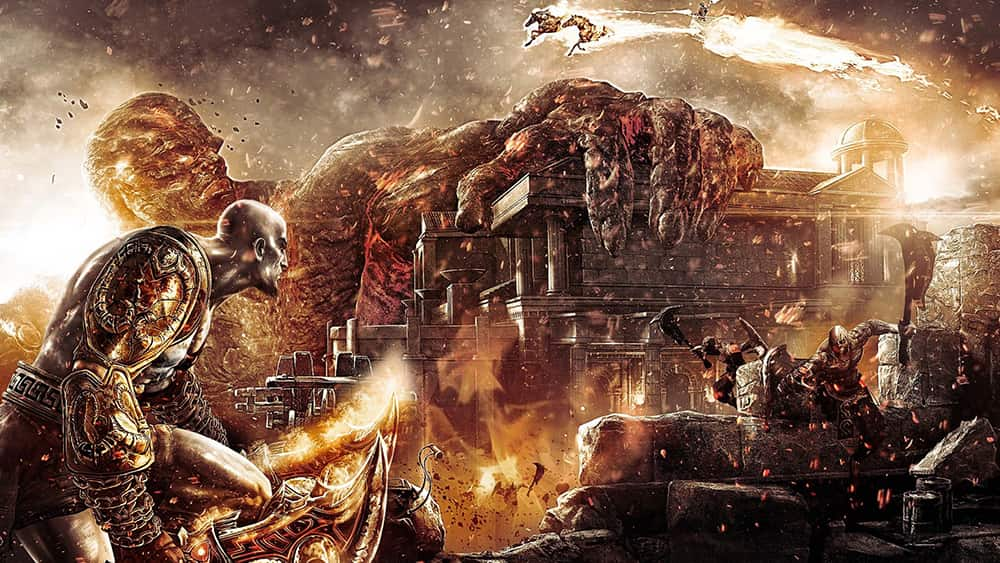
God of War 3
Having the support of Gaia and other titans, Kratos ascends Mount Olympus to destroy the Olympian Gods and Zeus. Poseidon starts a war against them, but Kratos and Gaia manage to kill Poseidon. With the death of Poseidon, all of Greece is buried by water. Gaia and Kratos quickly climb Mount Olympus and face off against Zeus. But Zeus repelled them and threw them down the mountain. Gaia clings to the mountainside. Kratos tells her to hold on and asks for help. However, Gaia does not want to help him and tells Kratos he is just a pawn. Gaia tells Kratos that the Titans' war has resumed, "You are a pawn for revenge!" she says.
Kratos falls from the back of Gaia into the river Styx. Styx is a river of the underworld. When Kratos escapes from the river, he encounters the spirit of Athena. Athena gives him the blades of banishment. She tells Kratos that to kill Zeus, he must extinguish the Flame of Olympus. On his journey, Kratos meets the spirit of Pandora in the underworld. After encountering Hephaestus, Kratos takes back the Sword of Olympus, kills Hades, and escapes from the underworld. When he arrives in Olympus, he finds Gaia, who asks him for help in an injured state. Not forgetting Gaia's betrayal, Kratos cuts off Gaia's arm and causes her death.
Kratos kills the Titan Perses and the god Helios to plunge all of Greece into darkness and extinguish the Flame of Olympus. Later, Kratos, who encounters the God Hermes, fights with Hermes until the Flame chamber. He kills Hermes. Meanwhile, he learns that the Flame of Olympus is in Pandora's Box. Athena says that the only person who can suppress this power is Pandora herself. With the death of Hermes, an epidemic spread throughout Greece. Hera sends Hercules to stop Kratos. Kratos defeats him and continues on his way. Kratos encounters Aphrodite, and the two return to Hephaestus. Hephaestus says he needs the stone in Kronos' stomach to forge the Sword Kratos wants. Kratos encounters Kronos and takes the stone from his stomach, killing him. The stone, called the Omphalos Stone, is a false child who was fed to Kronos at the time. Kratos delivers the stone to Hephaestus. Hephaestus forges the Sword and gives it to Kratos. However, the blade begins to electrify Kratos. Realizing he is trapped, Kratos gathers himself and kills him using the Sword forged by Hephaestus. Hephaestus says that before he died, he tried to protect Pandora, who got out of Pandora and got stuck in the labyrinth. Kratos passes through the Hyperion gate and ascends to the gardens of Hera. Here he meets Hera and kills her. He destroys the vegetation of Greece before going to the Labyrinth to find Pandora.
Kratos, who comes to the labyrinth, saves Pandora from there. Together with Pandora, they enter the area where the Flame of Olympus is located. However, Zeus does not allow and fights with Kratos. Meanwhile, Pandora sacrifices herself against Kratos's will. Seeing that Pandora's box is empty, Kratos attacks Zeus.
Meanwhile, Gaia, who has returned from the dead, tries to kill Zeus and Kratos. However, Gaia fails. Zeus and Kratos enter the body of Gaia. They start fighting inside. Kratos throws Zeus into Gaia's heart and kills them both there. Kratos thinks it's all over. However, at the same time, Zeus' spirit attacks. As Zeus is about to kill Kratos, Kratos journeys into his soul and memories, causing his nightmares. Here the spirits of his daughter Calliope and his wife Lysandra accompany Kratos and say they forgive him. Kratos, who got rid of his sufferings and torments, also forgives himself. God regains his powers. He places Zeus' soul in his dead body and beats Zeus to death. After killing Zeus, he looks at the vanishing Greece. The prophecy has come true. Zeus died, and the apocalypse came to Greece.
Athena appears and demands power inside Pandora's Box. Although Kratos says the box is empty, Athena doesn't believe it. She says that before the box was sealed, she placed a power inside it under the name of Hope. Kratos looks at the energy rising from him. Kratos unknowingly possessed such power. This is how he killed Zeus. Athena demands power. Kratos refuses and draws his Sword. Athena fears being attacked and says Kratos should be grateful to her. Kratos ignores him and swings his Sword. Athena pulls back momentarily, but Kratos turns the Sword's sharp point on his body and stabs it into his chest. Athena begins to insult him. With this movement, Kratos donated his power, Hope to the people of Greece, which was disappearing. Athena says that people will not know what to do with this power and goes. Kratos disappears, leaving traces of blood behind.
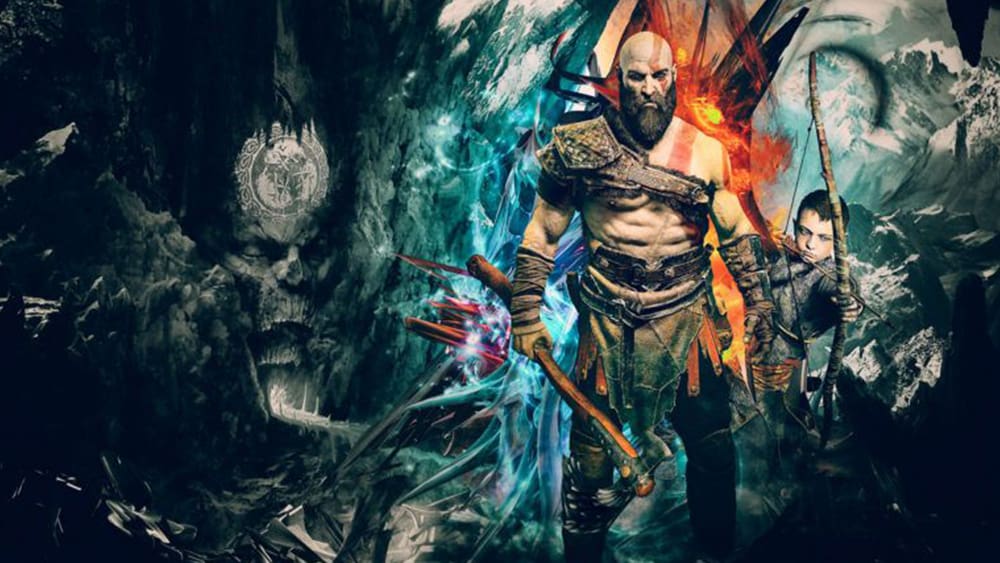
God of War (2018)
Taking revenge on the Greek Gods, Kratos begins to live with his young son Atreus in the realm of Midgard in Ancient Norway. The game starts after Faye, Kratos' second wife and Atreus' mother, dies. Faye's last wish is for the ashes to spread from the highest peak of the Nine Kingdoms. Kratos and Atreus set out to fulfill the request. Meanwhile, Kratos is attacked by a stranger and continues, thinking that he killed the stranger.
During their journey, Kratos and Atreus encounter Jörmungandr. Jörmungandr gives them directions and tells them they can only cross the road with the light of Alfheim. For this, Kratos gets help from a witch named Freya, defeats the fog, and reaches the summit of Midgard. There they learn that the man he thought he killed is alive. This man also has two servants. These two servants, Magni and Modi, torture a man named Mimir.
Kratos and Atreus confront Mimir here. They learn from him that the mysterious man is Odin's son Baldur. He even tells Kratos that the highest peak is in Jötunheim, and access there is blocked by Odin and Thor. But he says there is a different way to get there. He tells Kratos to cut off his head. Kratos cuts off Mimir's head and places it on his waist, and they continue. Meanwhile, he warns Atreus. Mimir says that Kratos is keeping a secret from him.
During their journey, Kratos is attacked by Modi and Magni. When Magni dies, Modi escapes but later returns and ambushes them. But Kratos repels him. Meanwhile, Atreus falls ill. Freya tells him to take a troll's heart. However, Kratos' weapon is useless. Kratos returns home to retrieve his old weapons. There he meets Athena. Kratos, who receives the heart, sees a ghostly vision of Zeus. Meanwhile, Atreus heals. Kratos tells him that he is a god. Atreus then becomes arrogant. Atreus kills the injured Modi, although Kratos tells him not to. Baldur then ambushes them. Here Atreus fights Baldur but loses. Kratos and Atreus fall into Helheim here and try to escape from there. While running, they discover that Baldur is Freya's son. Freya cast a spell to protect Baldur, which made him immune to all physical and magical threats. However, Baldur likes this situation; after a while, Baldur starts to get angry with his mother because he becomes numb. He thinks Freya ruined his life.
Continuing on their journey, Atreus and Kratos are again attacked by Baldur. Freya struggles to protect her son. Meanwhile, Baldur is pierced by Atreus' mistletoe arrow, and his spell is broken. Baldur is defeated. Although Kratos frees him, Baldur does not back down and tries to kill Freya. Kratos does not want Freya killed and kills Baldur by breaking his neck. Freya mocks Kratos' past and curses him because his son is dead. Kratos decides to tell Atreus all about his past. He describes how he killed other Greek gods, one by one, including Zeus. He also mentions why he raised Atreus differently. He says he wants Atreus not to be like him. Freya quietly leaves with Baldur's body.
Finally, they arrive in Jötunheim. They come across murals depicting all the adventures of Kratos and Atreus. They realize that the giants foresaw everything and vaguely predicted what would happen. They learn that Faye is also a giant and prefers to stay in Midgard. Atreus is revealed to be a god, giant, and mortal. They also realize that Baldur is after Faye. Atreus was named Loki by his mother. Atreus is a name coined by Kratos, and it is the name of a compassionate Spartan companion. This is how Kratos tells Atreus.
Having fulfilled Faye's last wish, Kratos and Atreus return to Midgard. Mimir tells them that a season called Fimbulwinter has begun and will last for three years. He then talks about the future of Ragnarök. When the game is over, Kratos and Atreus go home and sleep. Meanwhile, they wake up to the sound of lightning and storms. When Kratos and Atreus go out, they encounter a stranger. It turns out that this man carrying a hammer is Thor. They realize that they will face Thor at the end of Fimbulwinter.
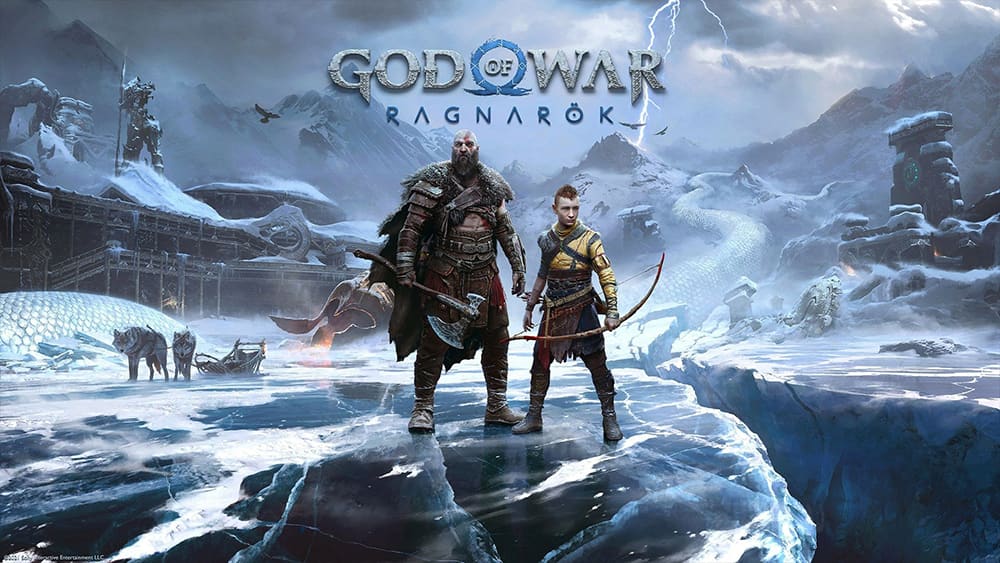
God Of War Ragnarok
God of War Ragnarök, which will be released in 2022, will tell the continuation of the game in 2018 and will be the last series of the game. As we understand from the previous match, Atreus, aka Loki, will probably be the god of mischief. While he was scattering Faye's ashes, the pictures on the wall said Atreus had killed someone. There were even words like “father” and “time of mourning” in the writings. Perhaps Atreus will kill Kratos, just as Kratos killed Zeus.
Although we do not know much about the game until its release, we owe a lot to this production, which handles Scandinavian and Greek Mythology in such detail wonderfully. Of course, we will update our article when the last series is released. Remember that this is the previous God of War game. Enjoy it as you wish, and don't finish it too soon!
Prev Post
Next Post

10 fun and beautiful, cheapest game guides available in the market....
See more

A comprehensive guide where we cover the most loved characters from cult games developed to date!...
See more

